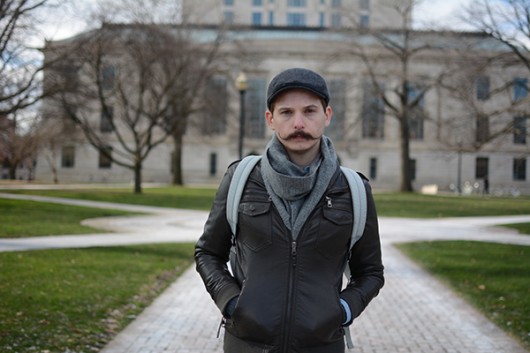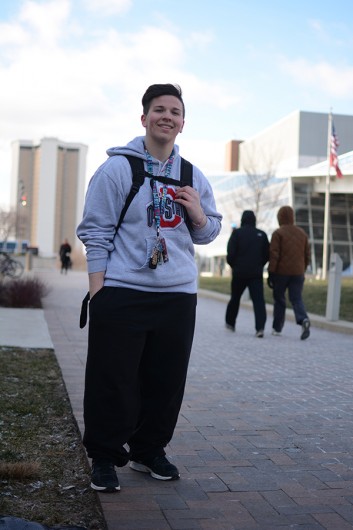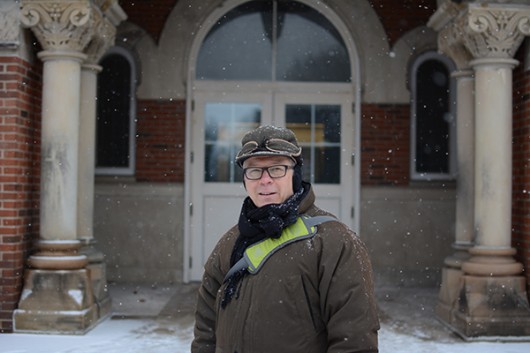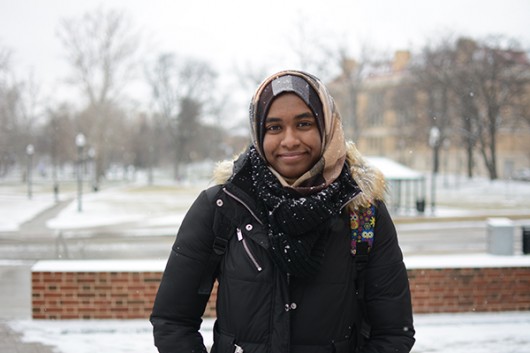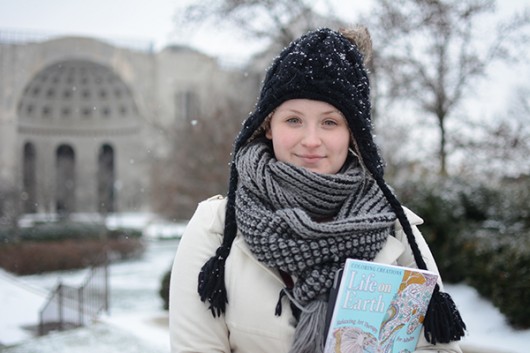Brandon Stanton is best known for founding the “Humans of New York” blog in 2010, which has since spawned two bestselling books and Instagram, Facebook and Twitter accounts with millions of followers.
Stanton comes to campus tonight for a talk sponsored by OUAB. In honor of his visit, The Lantern presents some Humans of Ohio State.
“I just started working on my undergraduate thesis. It’s about how social media is affecting inequality in society … Social media as an entity is such a different kind of media than we’ve traditionally consumed. Now, it’s coming from your peers who you want to be accepted by to preserve your self-esteem, so I think that’s causing people, more often than not, to accept their peers’ values. I also think because you can block people and delete friends who disagree with you ideologically, we’re also ghettoizing the ideologically, so, basically, you get into a sect where everyone around you has the same ideologically and you’re being pushed further one way. Because of social media, I think it’s harder to preserve seeing the other side as legitimate. I personally think it’s a good effect to get people more pushed to the left. I think it equalizes a political system that, in general in the past, has been a little too far to the right. In general, American liberals and Republicans differ very little, except for social issues, which is what we would consider market liberals from a whole world comparative view. I think shifting ourselves a little further to the left would be better for inequality because it is going to, sort of, equalize the stratified system and give people more of a chance to achieve the American Dream that they were promised, but might not necessarily be there for them.”
“I don’t want to necessarily inspire people, but just kind of open themselves to themselves and help them understand that every single choice you make today determines your tomorrow … I just come from a super small town in Ohio. It was a mile long and there were three churches within that mile. And, I have five sisters who are extremely feminine. I was just so unhappy all the time. My weight was a representation of me not being myself. I looked deep within and was like, ‘What is your problem? Why are you so unhappy?’ And then, I explored all the options and decided I needed to go to a gender therapist and so I went. I was diagnosed with gender and body dysphoria. For a year and a half I worked to get my referral for testosterone. Now, I’m five weeks in on (testosterone) and I’m already seeing changes. Every single day that I go to the gym and that I eat healthy — I get my shots weekly — I am just enjoying life so much more. I can envision my future, versus when I was overweight and identified as a woman, I didn’t know if I was going to live until the next day. Now I’m me, I’m happy and life is simplistic.”
“I primarily study the philosophy of language. When you think about language, we all do it. We all speak, we all read, we all understand each other. When you think about what that involves, it’s the making of different noises and inscriptions on paper. It’s not at all clear what it means to say or what needs to be the case for those things to convey meanings. Philosophy asks those kinds of questions that everyone else takes for granted. Philosophy wants to know, well, how is it even possible that this phenomena or this way of life can get off the ground?”
“Since I was a kid, I always wanted to be a doctor. When you go places — like I was born in Jordan but then I lived in Iraq for some time— and you see the conditions that the hospitals are in, you want to help. When I become a doctor, hopefully I’ll be able to have international rotations so that I can go around countries and help. Having seen (the conditions), it motivates you. (I was in Iraq) during the war. I was kid, but I remember being like, ‘hide under the table, it’s fireworks.’ I never really understood what was going on until I came here. Because usually when you go to school there, when you’re in the lower grades, they don’t really talk to you about current events. So when I came here, I was like, ‘Oh, that’s what’s going on.’ I lived in Iraq for about five years, but then when the war got really bad, we moved back to Jordan before I came here.”
“I mostly do makeup now and that’s what I would like to do forever, but I need a solid backup plan. I’ve worked in editorial, I’ve worked on commercials but I’ve done brides, and crazy stuff, like special effects or body paint. I like being able to make people feel beautiful and show that makeup isn’t superficial. It’s a misconception that I get a lot. But I think it’s art. I think that you have to be beautiful (already) for me, with makeup, to make you more beautiful. I’m just bringing out what you already have, I’m not masking anything. It’s expression. It’s art.”
